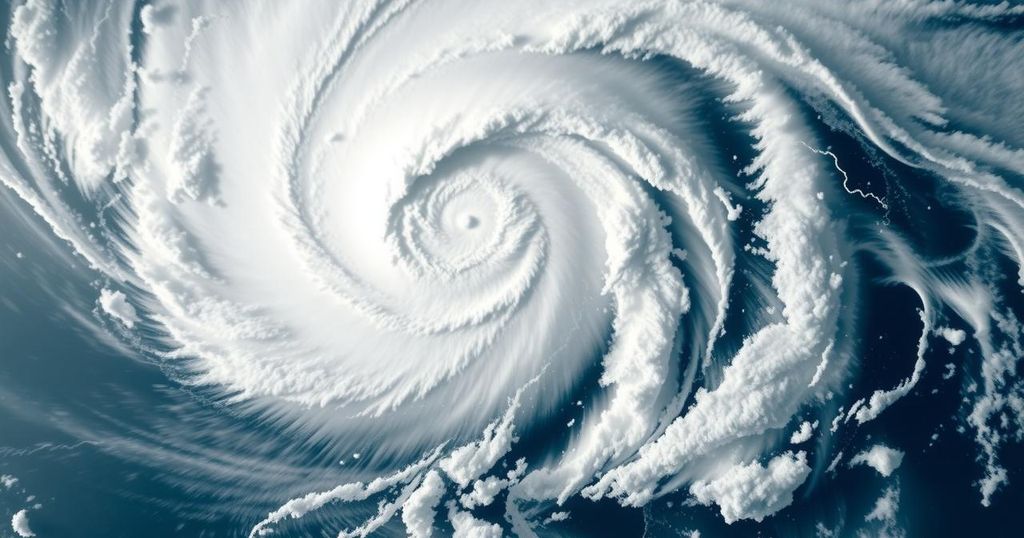Malawi Prepares for Tropical Cyclone Chido Amid Heightened Flood Risk
Malawi is on high alert as Tropical Cyclone Chido approaches, with heavy rainfall and flooding expected in the southern region. The cyclone is maintaining winds of 250 km/h and will likely affect 11 districts before making landfall in Mozambique. The government has issued evacuation advisories and prepared emergency response teams. This situation follows last year’s deadly Cyclone Freddy, exacerbating concerns due to ongoing food shortages caused by El Niño conditions.
Malawi is currently on high alert as it prepares for the arrival of Tropical Cyclone Chido, which is expected to bring significant rainfall and flooding, particularly to the southern regions of the country. The cyclone, tracking westward at a speed of 22 kilometers per hour, has sustained maximum winds of 250 kilometers per hour, according to the latest update from the Malawi Department of Climate Change and Meteorological Services. It is projected to affect 11 districts in southern Malawi including Mangochi, Machinga, Blantyre, Zomba, and others, before making landfall in Mozambique near Nacala on Sunday, with adverse weather conditions anticipated to continue until Tuesday.
The Department of Disaster Management Affairs has issued advisories for residents in at-risk areas, encouraging them to evacuate to higher ground. Chipiliro Khamula, the agency’s spokesperson, emphasized the importance of preparedness: “We have alerted all [district] councils and activated all clusters for swift preparatory and anticipatory actions.” Additionally, arrangements are in place for a search-and-rescue team comprising personnel from various emergency services.
This cyclone follows the devastating impact of Cyclone Freddy last year, which resulted in the deaths of over 1,000 individuals and severe loss of agricultural resources in the region. Currently, Malawi is grappling with the lingering effects of El Niño conditions, which have led to widespread drought and food shortages, affecting more than a quarter of Malawi’s population of 20 million. Paul Turnbull, the World Food Program’s country director in Malawi, stated that the organization has food stocks prepared to mitigate these ongoing challenges, emphasizing, “If food is needed to respond to Cyclone Chido, WFP will be seeking support to cover these costs.”
The urgency of the situation remains palpable as Malawi braces for another powerful storm. Authorities continue to coordinate resources and personnel to ensure public safety in the face of expected adverse weather conditions, highlighting both the immediate and lasting impacts of climate-related disasters in the region.
Tropical Cyclone Chido is a recent severe weather event impacting Malawi, a country already struggling with significant challenges due to climate change, including droughts caused by El Niño. In the previous year, Cyclone Freddy devastated southern Malawi, leaving a heavy toll in human and agricultural losses. Currently, Malawi is on high alert as this cyclone approaches, with predictions of heavy rains and flooding affecting numerous districts. The government and humanitarian agencies are mobilizing resources to aid vulnerable populations and prepare for potential emergencies following the cyclone’s impact.
With Tropical Cyclone Chido forecasted to deliver severe weather to Malawi’s southern regions, the government and humanitarian organizations are taking decisive action to prepare for the worst. This follows a challenging year marked by Cyclone Freddy’s devastation and ongoing El Niño effects, further complicating food security in the country. The collaborative efforts among various agencies aim to ensure public safety and support for those adversely affected by both past and incoming climatic challenges.
Original Source: www.voanews.com




Post Comment